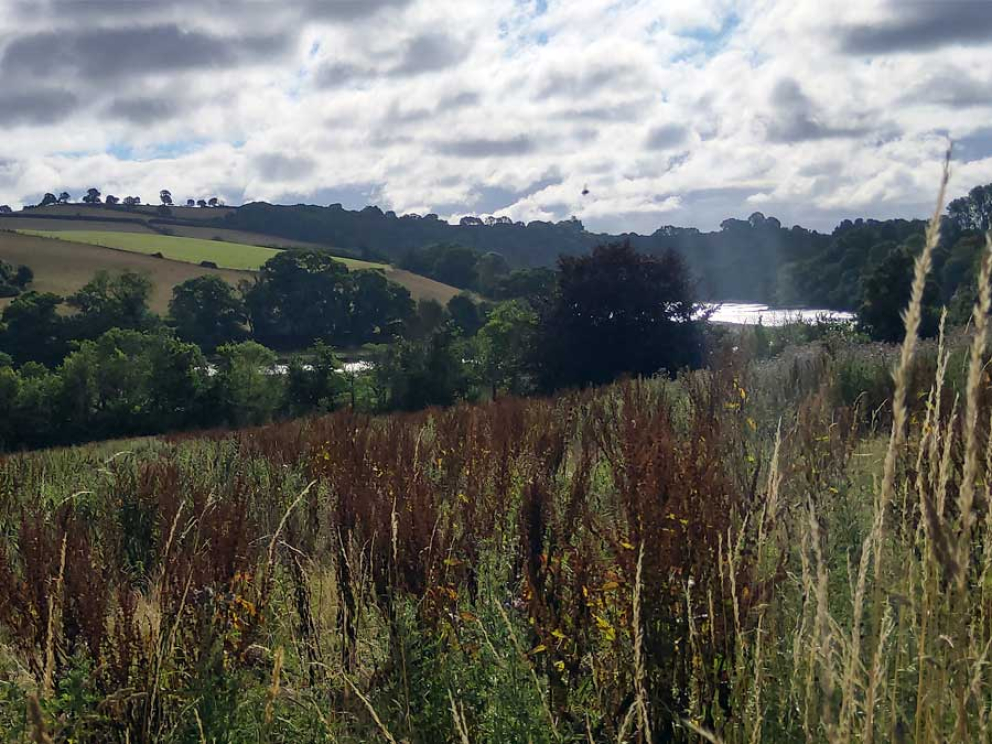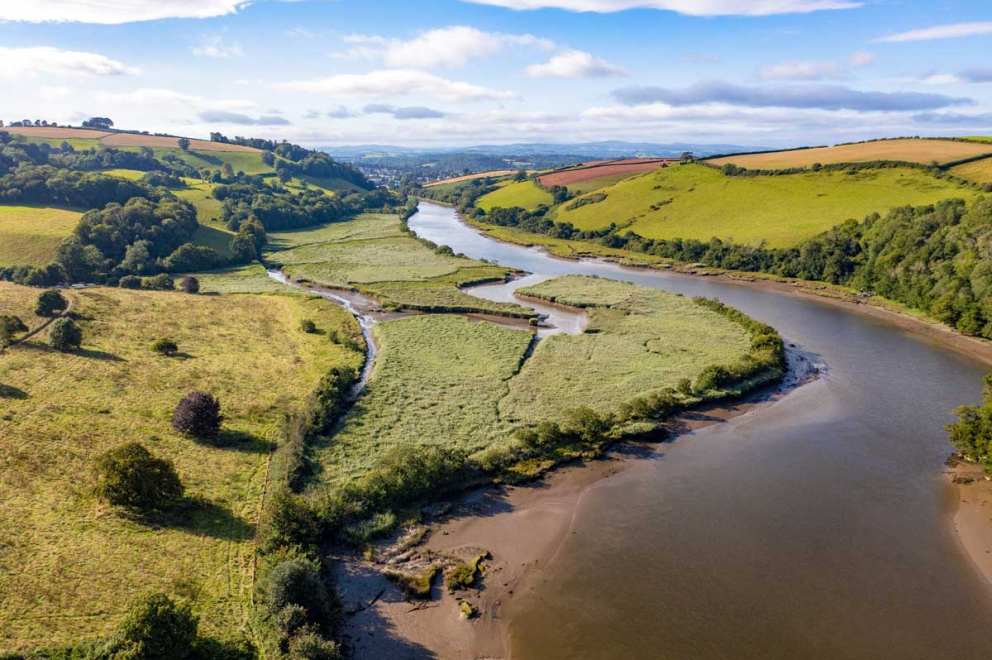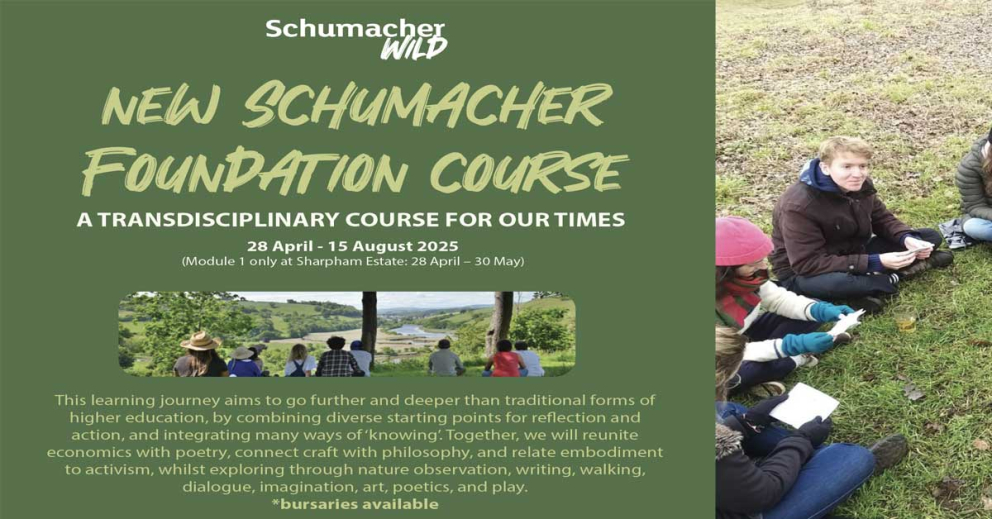
The Sharpham Estate outside Totnes in South Devon is now fully organic.
It means that Sharpham’s farmland will be fertilised organically and chemicals will no longer be used – helping to boost biodiversity and support soil health.
“This is an important step forward for us on the Sharpham Estate,” said Trust Director Julian Carnell. “Part of the Trust’s mission is to connect people to the natural world and this means we want to create a genuinely positive relationship with the land that we care for and the plants and animals that it supports.”
“Organic management means we avoid some of the harmful impacts that more intensive chemical agriculture has on soils, rivers, our climate and biodiversity,” he added.
“We are already seeing the benefits in terms of increasing wildlife whilst also producing more high quality local food.”
All of Sharpham’s farms are now organic
There are farms at Upper and Lower Sharpham Barton and Home Farm, close to Sharpham House. All areas are now officially organic, with Soil Association and Organic Farmers & Growers certification.
The most recent farm to win organic status was 140-acre Home Farm, some of which is being tenanted by David and Helen Camp and some has has become our rewilding area.
Said David: “It’s good to be able to farm organically and produce food for people in the most sustainable way we can, using fewer fossil fuel inputs in the form of fertilisers and pesticides and working with nature and the natural resources of the rain and the sun in order to produce food to feed people.”
He added: “Also by utilising our natural resources rather than being tied to big chemical companies and industrial farming, it’s a much more enjoyable way to farm, more sustainable and better for the environment.”
Helen said that being an organic farm could be an inspiration to others in food production. “It’s great that we can educate people and then they can go and organically farm as well. It’s something that everyone can do. It’s good for the cattle, the wildlife and for your wellbeing as well,” she said.
The Camps also farm organically at Upper Sharpham Barton Farm on the Sharpham Estate and at Daynes Farm, at Harberton, just a few miles away from Sharpham. They farm cattle, sheep, goats and vegetables.
The couple have been farming organically since 2001 and at Upper Sharpham Barton for the last decade.
Home Farm had to undergo a two-year organic conversion process before it could be granted official organic status from the Organic Farmers and Growers organisation.
Lower Sharpham Farm has been fully organic for over 20 years, certified by the Soil Association.
Jack Skuse, who farms cattle and sheep at Lower Sharpham for nature conservation organisation Ambios Ltd, said: "We are thrilled that we can now proudly say Sharpham is an organic estate."
"At Ambios, our work at is to offer inspiring and life changing nature conservation training opportunities. Farming organically ensures we have a platform for wildlife to flourish, and for our trainees to learn about positive farm practice.
"We also work with a charity called United Response for adults with learning difficulties, who carry out the day-to-day work of the organic farm. Being organic ensures a safe environment for the people United Response support to work, chemical-free, and look after our animals and land in a healthy way".
The project is exploring the intersection of rewilding, farming and how people interact with the land. The Totnes to Sharpham cyclepath (part of Route 28 of the National Cycle Network) runs right through the land being rewilded.
Wild for People is being delivered with partners Ambios Ltd – who farm organically at Lower Sharpham Farm on the estate. The project’s aims are to:
- make more space for wildlife and take action for nature
- assist in turning the Sharpham Estate organic (an aim that’s now been achieved)
- re-wild parts of our historic landscape
- help more people engage with nature here
The project is going into its 3rd year and has already resulted in more insects and small mammals living in the longer grasses which have replaced the monocultural fields of fertilised grass.
These have provided an improved food source for small birds and birds of prey, whose numbers have increased across the fields. Livestock that are chemical free also means their dung is healthy, a vital food source for insects including dung beetles. These in turn are crucial for healthy populations of bats who feed on the beetles.
Grazers including pigs and cows have been introduced to the wilder fields to disturb the land, making it easier for plant seeds to set and support the rewilding process. Those plants provide increased pollen for insects and the cycle continues.
Dog-walkers are being asked to support the project by keeping their pets on a lead and keep to the path and stay out of the fields where the cows and pigs are grazing – land between the river and the Totnes to Sharpham cycle/footpath as it nears Sharpham House.
Share this story
Follow @SharphamTrust on Twitter, Facebook and Instagram and use #SharphamTrust and #NoticeNature
Visit our Wild For People pages here










